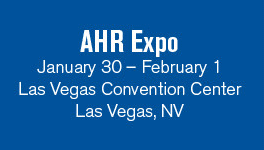Sunday, January 29, 2017: 1:30 PM-3:00 PM
HVAC&R Systems and Equipment
Chair:
Kyle Gluesenkamp, Ph.D., ORNL
Technical Committee: 8.3 Absorption and Heat Operated Machines
As current natural gas heating units approach their efficiency limits, what will be next? Sorption systems (including absorption and adsorption) can provide gas heating efficiencies well above 100% by extracting heat from the ambient. They are rapidly expanding into water and space heating systems, especially in Europe. The IEA Annex 43 has the goal to widen use of fuel driven heat pumps, and in this seminar, member countries report on recent field studies and development of international rating standards that can help sorption technologies accelerate their rapid expansion into residential and commercial space and water heating markets.
1 Practical Experience of Field Testing Residential and Light Commercial Gas Absorption Heat Pumps
Two types of gas absorption units have been installed in field tests in Germany. A larger capacity unit (140 kBtu/h or 41 kW heating) with 50-100% modulation was installed with an auxiliary boiler in a school building to replace a 150 kW boiler. In addition, smaller (61 kBtu/h or 18 kW heating) units were installed for residential applications, without auxiliary boilers. The measured savings over the baseline boiler systems have been up to 40%. This seminar describes the system layouts and how the savings were achieved.
2 Field Testing of Residential Gas Absorption Storage Water Heaters
Several prototype ammonia/water absorption water heating units, aimed at the residential water heating market, have been recently evaluated. Field tests as well as laboratory reliability evaluations were conducted. Energy factors significantly higher than 1 were observed in a variety of installations. Analysis of these results and lessons learned are discussed in this seminar.
3 Existing and Emerging International Standards for Evaluation of Fuel-Fired Sorption Heat Pumps
Proper equipment testing standards give consumers confidence, reduce uncertainty for manufacturers, and enable utilities to offer incentives for more efficient products. Besides these goals, a standard should not be too burdensome to conduct. This seminar describes the unique characteristics of gas heat pumps and how those relate to standards. Attendees will gain a better understanding of how gas heat pumps operate and can be applied.
4 Multi-Laboratory Round-Robin Testing of Commercialized Sorption Heat Pumps for Residential Space Heating
For the first time, sorption heat pump units were subjected to round-robin testing at two different laboratories. Testing was conducted according to existing European standard EN12309 and German standard VDI 4650. In order to inform ongoing standards development, the team identified recommendation to address challenges with measurement of low part loads, as well as how to minimize testing burden while achieving a seasonal efficiency rating.





